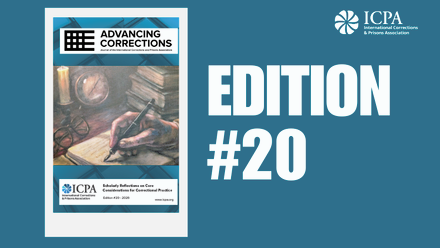Advancing Corrections Journal - Edition #19 - Excellence in Juvenile Justice Policy and Practice | Article 3 (ACJ19-A003)
Abstract
It has been noted that more than 70% of justice-involved youth may have experienced traumatic bereavement—often the death of a parent, caregiver, sibling, or close friend. Yet, juvenile justice systems worldwide often overlook the emotional toll of grief when designing rehabilitation programs. International frameworks such as the United Nations Beijing Rules (1985) and Havana Rules (1990) emphasize humane, rehabilitative treatment and the protection of rights and dignity for youth in custody (United Nations General Assembly, 1985; United Nations General Assembly, 1990). While these standards promote rehabilitation, grief remains an under-addressed factor affecting mental health, legal decision-making, behavioral outcomes, and community reintegration. Drawing on global research and case studies, this paper demonstrates how unresolved grief can exacerbate psychological distress, impair cognitive function, increase recidivism risk, and weaken family bonds (Harnisher et al., 2015; Gonzalez et al., 2022). Despite international mandates, many justice systems lack structured interventions to support grieving youth (Coomber, 2022; Ford, 2022). This paper presents evidence-based mental health strategies, trauma-informed legal protections, rehabilitative programming, and family-centered support models that align with the Beijing and Havana Rules. We underscore the urgent need for grief-sensitive policies to ensure that all youth receive the emotional and psychological care necessary for successful reintegration and long-term well-being.
Please log in to download the full article. Access is available exclusively to ICPA Full, Staff, and Professional Members.

